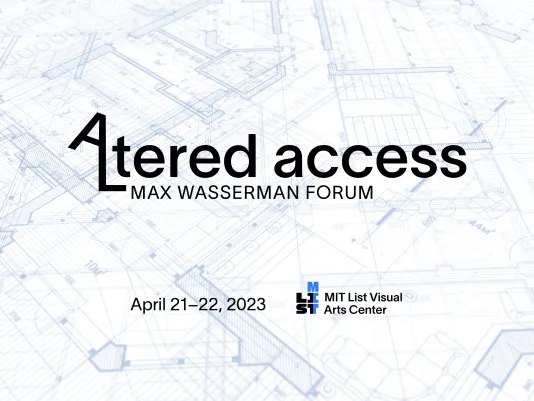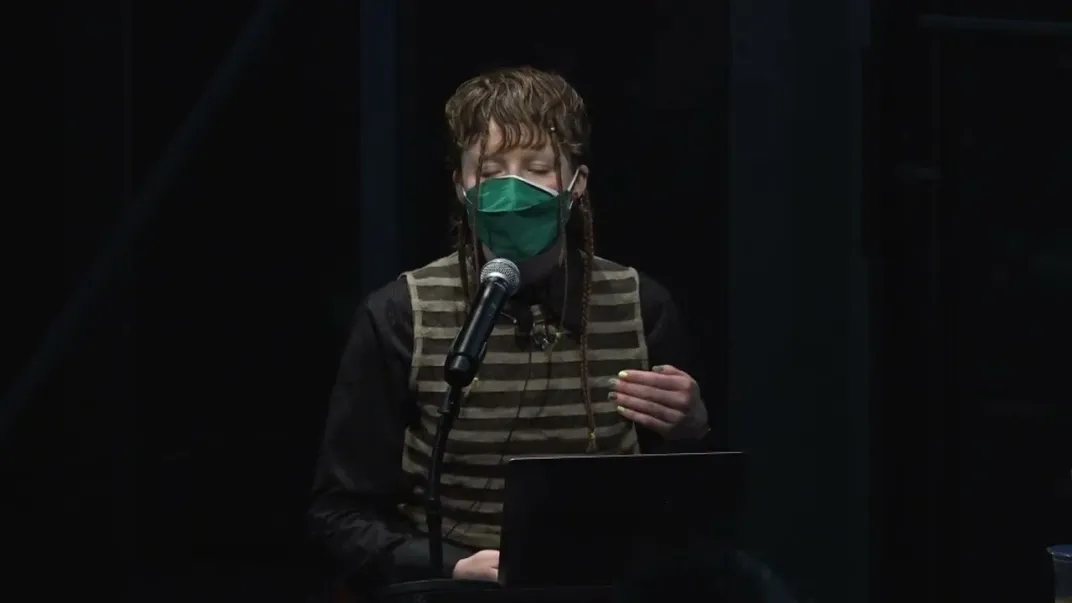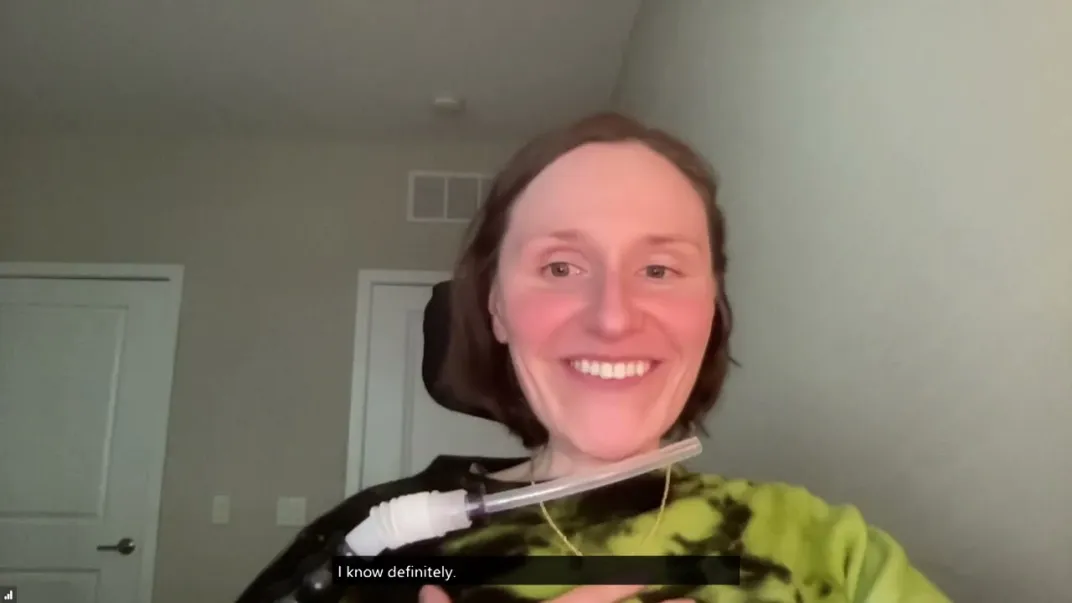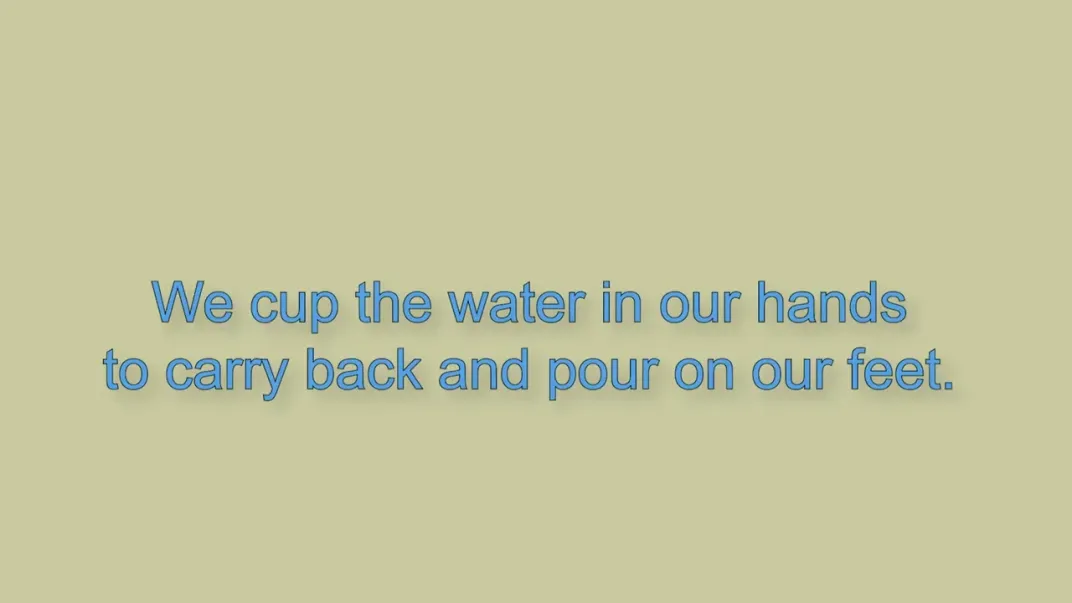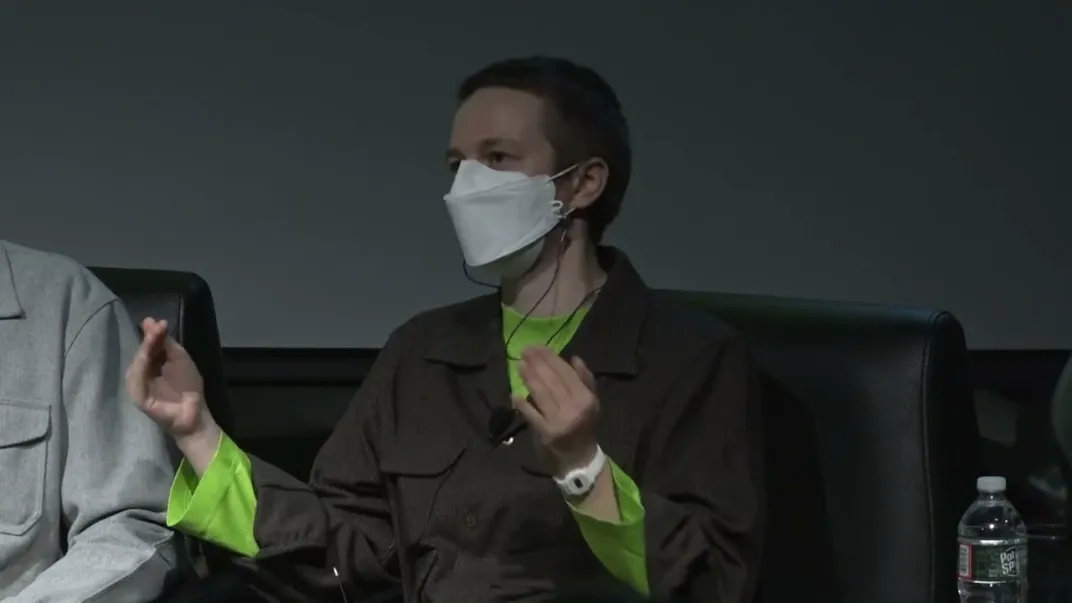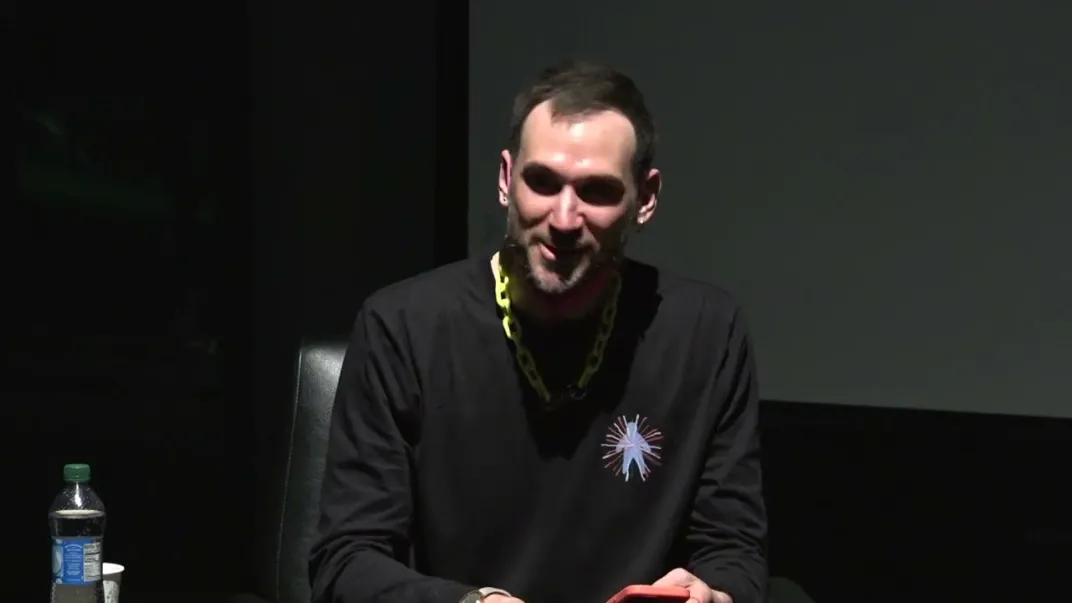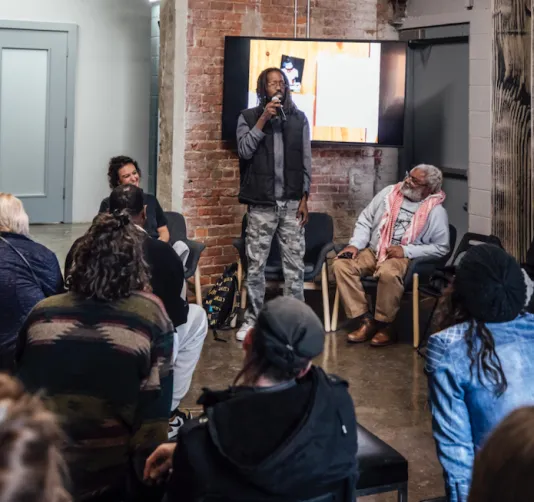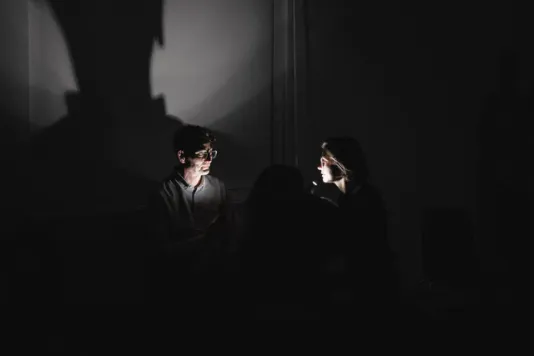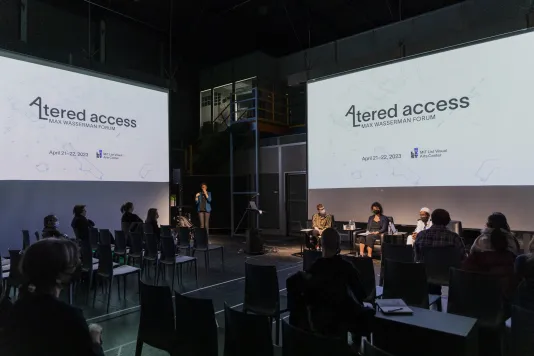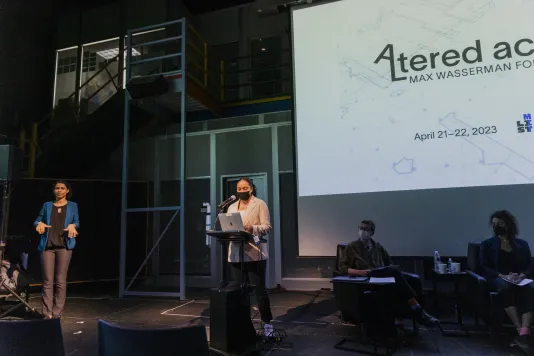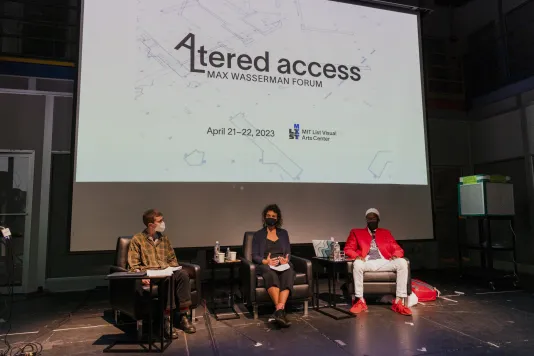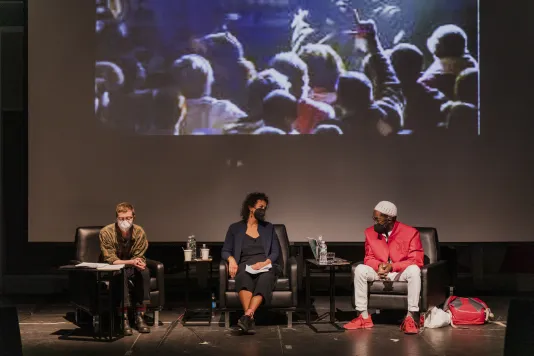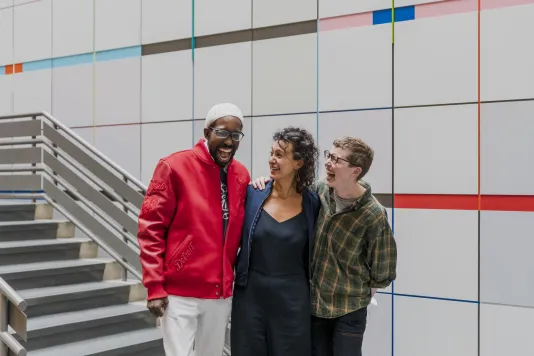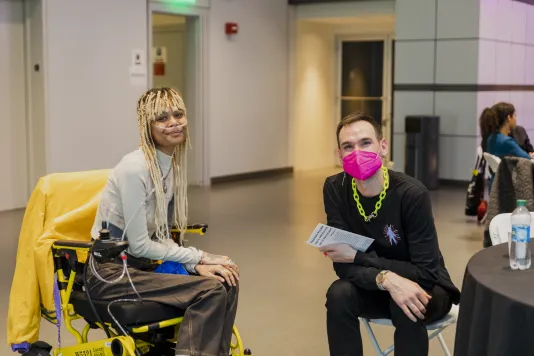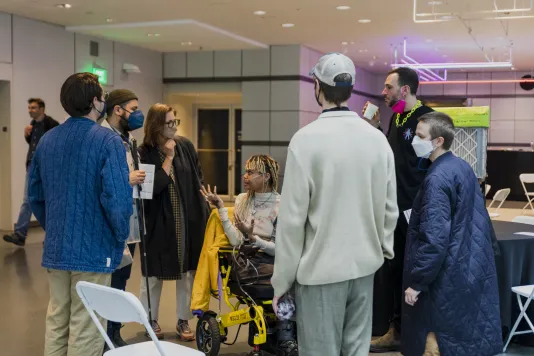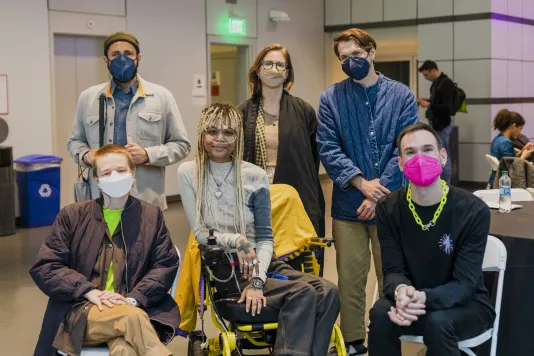The 2023 Max Wasserman Forum: Altered Access brings together artists, educators, and curators to discuss current disability discourse within the arts and museum institutions.
This year’s Wasserman Forum will consist of two days of hybrid programming including a virtual keynote address, and three hybrid panel discussion. As part of this program the List Center will stage three performances prior to the keynote address of Liza Sylvestre and Christopher Jones Flashlight Project, which addresses a need to reconfigure conversation models in order to consider individuals with differing levels of sensory ability. Registration is available for individual programs with options for tuning in via live stream.
About Altered Access
The 2023 Max Wasserman Forum: Altered Access brings together artists, educators, and curators to discuss current disability discourse within the arts and museum practices. The Americans with Disability Act (the civil rights law signed in 1990) prohibits discrimination against those with a disability; however, inadequacies in access persist. In the years since that landmark legislation, the related fields of disability studies and crip theory—a discourse at the intersection of disability and queer studies, which foregrounds the complexity of disabled experience—have increasingly influenced art institutions on a broader level.
Altered Access will center voices in the arts and disability practice in three panels to consider aspects of digital access and spatial design, and how museums can serve as places of healing. What if access thinking was integrated into the installation of artworks and the creation of programs at the initial stages rather than as an afterthought? What critical questions, experimentation, and creative thought could be built into these preliminary phases? The forum will also explore other innovative approaches that implement accessible, inclusive practices, which every organizational and institutional model can apply in developing a fresh look at how disabled artists, audiences, and museums can work together.
About The Max Wasserman Forum
The Max Wasserman Forum on Contemporary Art was established in memory of Max Wasserman (MIT Class of 1935), a founding member of the Council for the Arts at MIT. This public forum was endowed through the generosity of the late Jeanne Wasserman and addresses critical issues in contemporary art and culture through the participation of renowned scholars, artists, and arts professionals. The Forum is organized and presented by the MIT List Visual Arts Center.
